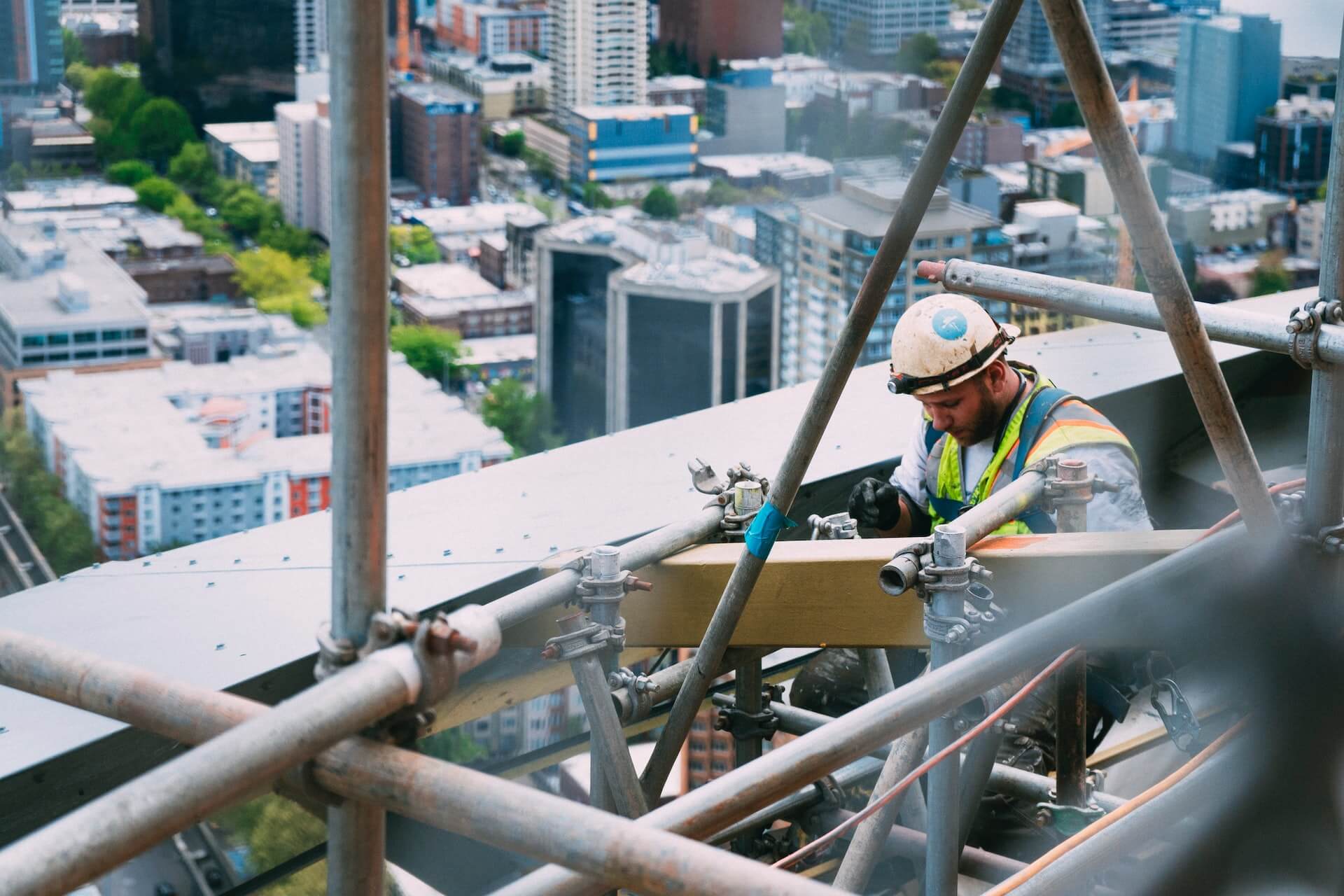
November 24, 2022
Benefits Of Buying Off The Plan

Buying off the plan is an increasingly popular option for home buyers with many high quality building developments in the real estate market. However, what ‘buying off the plan’ means and how it works is not exactly common knowledge.
With consecutive interest rate increases by the RBA, we are seeing some relative property price decreases, but that has not affected property developments in the market. We have seen record breaking cranes across the Sydney city skylines and more and more first home buyers and owner occupiers trying to get into the Aussie property market. Although some of the developments can be attributed to a backlog of developments after COVID-19 lockdowns, the property market appears to still be healthy and active.
For this reason, buyers are excited by the benefits of securing a property in today’s market by purchasing a property off the plan from a developer. There are a list of benefits such as capital gains, tax benefits or simply just being able to secure a home without having to do a lot of running around. But it’s important to protect yourself from potential risks and ensure you sign the right contracts and find the property developers in Sydney or Australia for that matter.
That’s why the team at HYG have put together this comprehensive guide on purchasing a property off the plan and all the benefits it has. Read on to find out more.
How Buying Off The Plan Works?
Buying a property ‘off the plan’ means buying a property that hasn’t been built yet. This is typically seen when developers build big apartment blocks, estate homes or townhouses.
When buying off the plan, the purchaser cannot view the exact property you will be purchasing but can view a display apartment or home that represents the way the actual property will look once built.
When you buy an off-the-plan property, the sales and home loan process is different to what happens when buying an existing property.
If a buyer is satisfied with the information promised and provided by the developer such as design blueprints or plans, artist renderings of interiors, architectural models of the exterior and even display suites and site tours, the purchase process will begin.
Buyers are usually only required to pay a deposit to the developer or their real estate agent when signing a contract to purchase the property, which is usually around 5% to 20% of an estimation of what the property will be worth once it is built, although this can differ from project to project.
It is then up to the purchaser to also arrange their own home loan to pay for the purchase once the property is built. This process can vary across lenders depending on many factors, so it is important for purchasers to potentially arrange a loan arrangement before committing to purchasing a property off the plan. The lender will also typically re-value the property prior to the final payment being made to the developer.
Why Buy Off The Plan?
There are many benefits to purchasing a property off the plan which is what attracts many first home buyers and investors alike. These include:
More Time to Prepare Financially
Arguably the best aspect of buying off the plan is you’ll have some time, often 1-2 years, to prepare yourself financially. Other than having to provide a deposit and have a lawyer review the property contract you won’t need to worry about any other financial payments until the property is built. This convenient extra time is an excellent opportunity for buyers to continue building up savings and reduce any financial distress.
Avoid High Interest Rates
The added extra time for loan repayment to begin also means that if repayments for a loan were to start 2-3 years from now, there is a highly likely chance that the interest rates will settle and stabilise. This means that the purchaser will receive a better interest rate on their loan repayments and added savings.
Increase in Property Value
When you buy off the plan you’re locking in today’s price, so from the moment you sign the contract you don’t have to worry about inflation or property prices soaring skywards. This could potentially result in a quick profit.
This gain in property value could mean that your loan-to-value ratio (LVR) goes down.
What exactly does this mean? Let us explain.
Let’s say you are a first home buyer and you purchase a property for $500,000 and you have a deposit saved up of $25,000, which is the required 5% deposit, you need to borrow $475,000. This means your LVR would be 90%, because $475,000 is 90% of $500,000.
By the time the property is complete and payment is required, the value of the property would have likely increased – to let’s say around $550,000. Even if you haven’t been able to save more and still need to borrow $475,000, your LVR would go from 90% to around 85%.
It also means that you would have received 100% of your deposit money back plus more!
If you aren’t a first home buyer, a lower LVR means you could avoid paying the added cost of Lenders Mortgage Insurance (LMI) – which is a fee that is charged to borrowers who put down a deposit of less than 20% of the total value of the property they’re buying.
Stamp Duty Concessions
A regular property purchase will require that you pay stamp duty within three months of the contract date (though there are exemptions for first home buyers).
However, with off the plan purchases, the time frame to pay the stamp duty is extended to 15 months after the contract date or the date the property is completed. This concession however only applies for individuals who intend to live in the property.
Potential for premium rent
Lower Maintenance Costs
It is often the case that new properties will require far less major repair and maintenance costs which is a major bonus to purchase off the plan.
First Owner Feeling
There is no sweeter feeling that being the first to live in a new home has a particular appeal and enjoyment to the fullest.
Ability to Tailor New Property to Personal preferences
Some purchasers ask for the developer to make alterations and additions prior to the build, allowing them to create a property that suits their needs and wants without having to renovate.
Government Protections When Buying Property Off The Plan
As of 1 December 2019, there are new protections and statutory remedies apply to contracts. Some major safeguards when purchasing a property off the plan include:
Increased disclosure
Vendors must provide purchasers with more information about the building when selling property off the plan compared to when selling an already constructed home. A disclosure statement must be attached to the contract, by the vendor, that outlines key information, such as sunset dates and other conditional events, and provide draft documents like a plan, proposed schedule of finishes, and draft by-laws.
Notification of Changes and Statutory Remedies
It is not uncommon for there to be changes during a development, and property at completion may slightly vary from what the purchaser was originally promised. As such, vendors must now notify the purchaser of any modifications or changes that have now made any of the above disclosed information inaccurate in a ‘material particular’. Material particulars are changes that will severely impact the use or enjoyment of the property being purchased.
Any changes that the purchaser is not happy with, allows them to pull out of the contract and get the deposit back. Alternatively, they may choose to settle the purchase and claim compensation for the change instead.
Purchasers must also be provided a copy of the registered plan at least 21 days before settlement.
Sunset Clauses
If a developer decides they would like to end the contract, they need the buyer’s consent before they end a contract using a sunset clause, otherwise the developer will need to apply to the NSW Supreme Court to justify termination.
Cooling Off Period
Any off the plan buyers are provided with a 10 business day cooling off period, which is two times longer than the cool off period for already constructed homes. Purchasers can decide to pull out of the contract during the cooling off period but will forfeit 0.25 per cent of the purchase price.
The cooling off period can be waived or shortened, but only if the purchaser’s lawyer or conveyancer provides a certificate required by legislation explaining the contract and the consequences of varying the cooling off period.
Deposits
From 1 December 2019, all deposit monies and any instalments paid under an off the plan contract will be held in a trust or controlled money account during the contract period. This money cannot be released to the vendor before settlement, meaning that deposit and instalment monies are protected in the event of the developer’s insolvency.
How To Protect Yourself When Purchasing a Property Off The Plan
There are a few precautions you can take as a buyer when you buy off the plan which can help protect you from any unforeseen risk. These include:
- evaluate the credibility of the builder – you can do this by asking to see some of their previous work or asking for various building accreditations and ratings.
- Be mindful of the property market and economic conditions – more specifically interest rates, confidence in the property market, supply and demand conditions etc.
- seek independent legal advice on contract documents – see a well established property lawyer who understands the ins and outs of property law is highly recommended before pursuing any off the plan property purchases.
- know where to seek assistance (typically via your state or territory fair trading or consumer protection authority).
Conclusion
With many property developments appearing on the Aussie real estate market, it is time for first home buyers and investors to consider buying off the plan. Sydney has had great development in the past few years including the property developments by the team here at HYG.
If you are interested in purchasing a home off the plan, contact us at HYG and let us help you find the perfect property opportunity. With many different types of developments underway at the moment and recently completed, there is a perfect apartment development for almost anyone to invest in.

